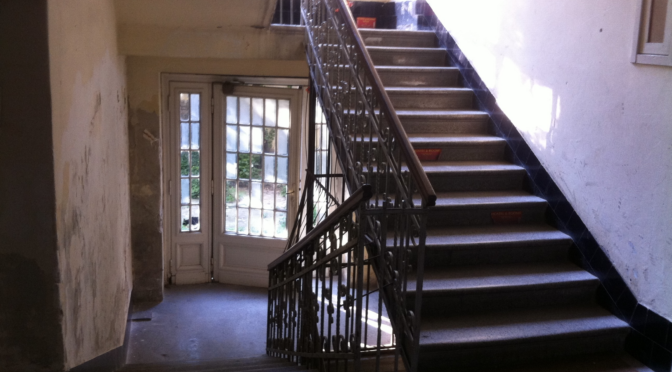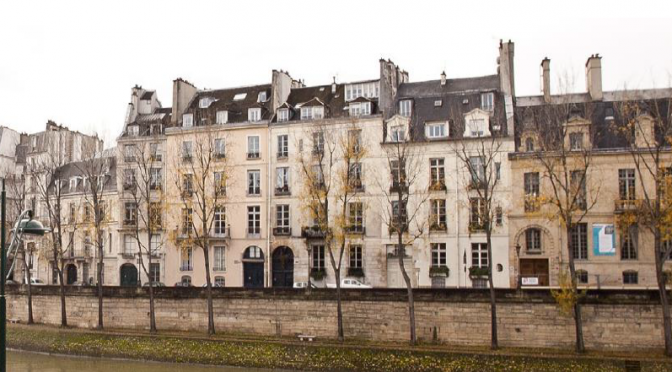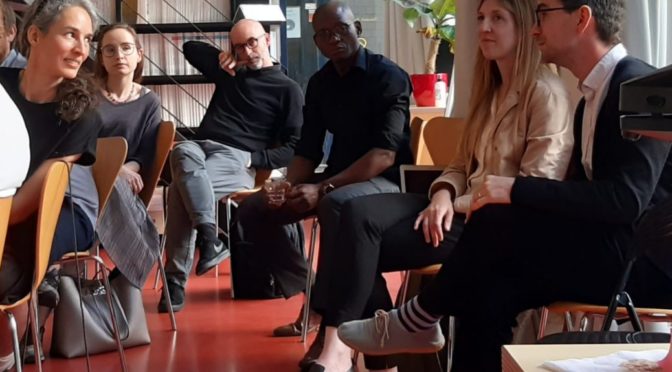СТИПЕНДІЇ UMIFRE
ДЛЯ УКРАЇНСЬКИХ ДОСЛІДНИКІВ
У ГАЛУЗІ ГУМАНІТАРНИХ І СОЦІАЛЬНИХ НАУК 2025
У співпраці з Міністерством Європи та закордонних справ Франції (MEAE), Посольством Франції в Україні та Національним центром наукових досліджень Франції (CNRS), три французькі науково-дослідницькі інститути за кордоном (UMIFRE), розташовані в Центральній Європі, оголошують конкурс на здобуття нерезидентських стипендій для українських дослідників і дослідниць у галузі гуманітарних і соціальних наук.
Інститут досліджень Східної Європи, Кавказу та Північної Азії (IRECA, Варшава),
Французький центр соціальних досліджень (CEFRES, Прага)
та Центр Марка Блока (CMB, Берлін) продовжують програму, започатковану у 2023 році в CEFRES та подовжену у 2024 році дослідницькими центрами CEFRES і CMB (41 нерезидентська стипендія та 13 резидентських стипендій, наданих у 2023–2024 рр.).
СТИПЕНДІЇ
- Нерезидентські стипендії у розмірі 2000 євро будуть виплачені одноразово для підтримки дослідницької діяльності в партнерстві з французькими, німецькими, польськими та чеськими колегами в рамках трьох інститутів UMIFRE.
- Резидентські стипендії для проведення дослідження у Франції — у розмірі 2040 євро на місяць — будуть надані лауреатам програми на період від 15 днів до 2 місяців.
- Лауреати будуть асоційовані з одним із інститутів UMIFRE (CEFRES, CMB, IRECA) протягом шести місяців: з червня по грудень 2025 року.
- У жовтні 2025 року буде організовано тижневий воркшоп, який збере лауреатів програми, членів трьох інститутів UMIFRE та науковців з країн Центральної Європи (мовою заходу буде англійська).
- Упродовж усього нерезидентського періоду українські колеги зможуть долучатися до наукової діяльності UMIFRE в гібридному форматі.
- Лауреати отримають доступ до баз даних, які надає дослідницький центр CNRS.
КРИТЕРІЇ ВІДБОРУ
- Українські дослідники та дослідниці, які мають науковий ступінь (кандидат/доктор наук) у галузі гуманітарних чи соціальних наук, і які змушені були або вирішили залишитися на території України після початку повномасштабного вторгнення Росії.
- Проєкти будуть оцінюватися за їхньою якістю та значенням для двостороннього наукового співробітництва науковим комітетом, до складу якого входять експерти з гуманітарних і соціальних наук, а також представники дипломатичних структур Франції, зокрема Французького Інституту в Україні.
ЗАЯВКА
Кандидати мають надіслати на електронну адресу claire.madl@cefres.cz (англійською або французькою мовою) наступні документи:
- дослідницький проєкт (максимум 4 сторінки);
- мотиваційний лист (максимум 2 сторінки), в якому зазначено:
- бажану тривалість перебування у Франції
- бажаний період перебування
- вплив війни на дослідницьку діяльність (за бажанням)
- лист-запрошення (максимум 1 сторінка) від ідентифікованого наукового партнера у Франції
- наукове резюме (CV) з оновленим списком публікацій
CEFRES радо допоможе вам з ідентифікацією дослідницьких інституцій та науковців у Франції, які можуть зацікавитися співпрацею з вами. Звертайтеся за адресами: claire.madl@cefres.cz, heloise.marmousetdelataille@ifu.kiev.ua.
КАЛЕНДАР
- подання заявок: 21 квітня – 1 червня 2025 року
- завершення подачі заявок : 1 червня 2025 року, 23:59 СЕТ
- оголошення результатів: 30 червня 2025 року
- нерезидентські стипендії: з 1 липня по 31 грудня 2025 року
- резидентські стипендії у Франції: з 1 вересня по 31 грудня 2025 року
резидентський воркшоп : жовтень 2025 року






